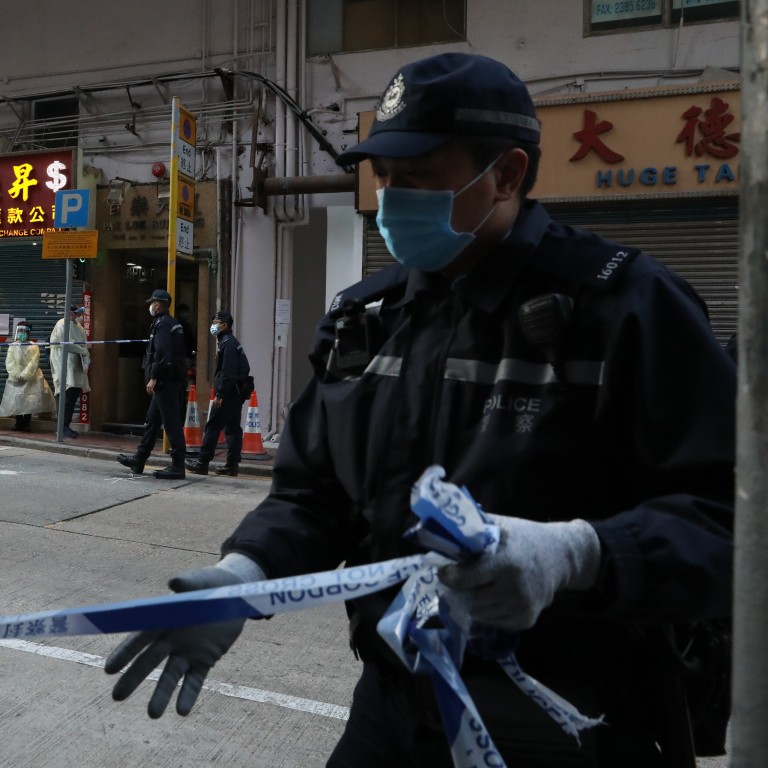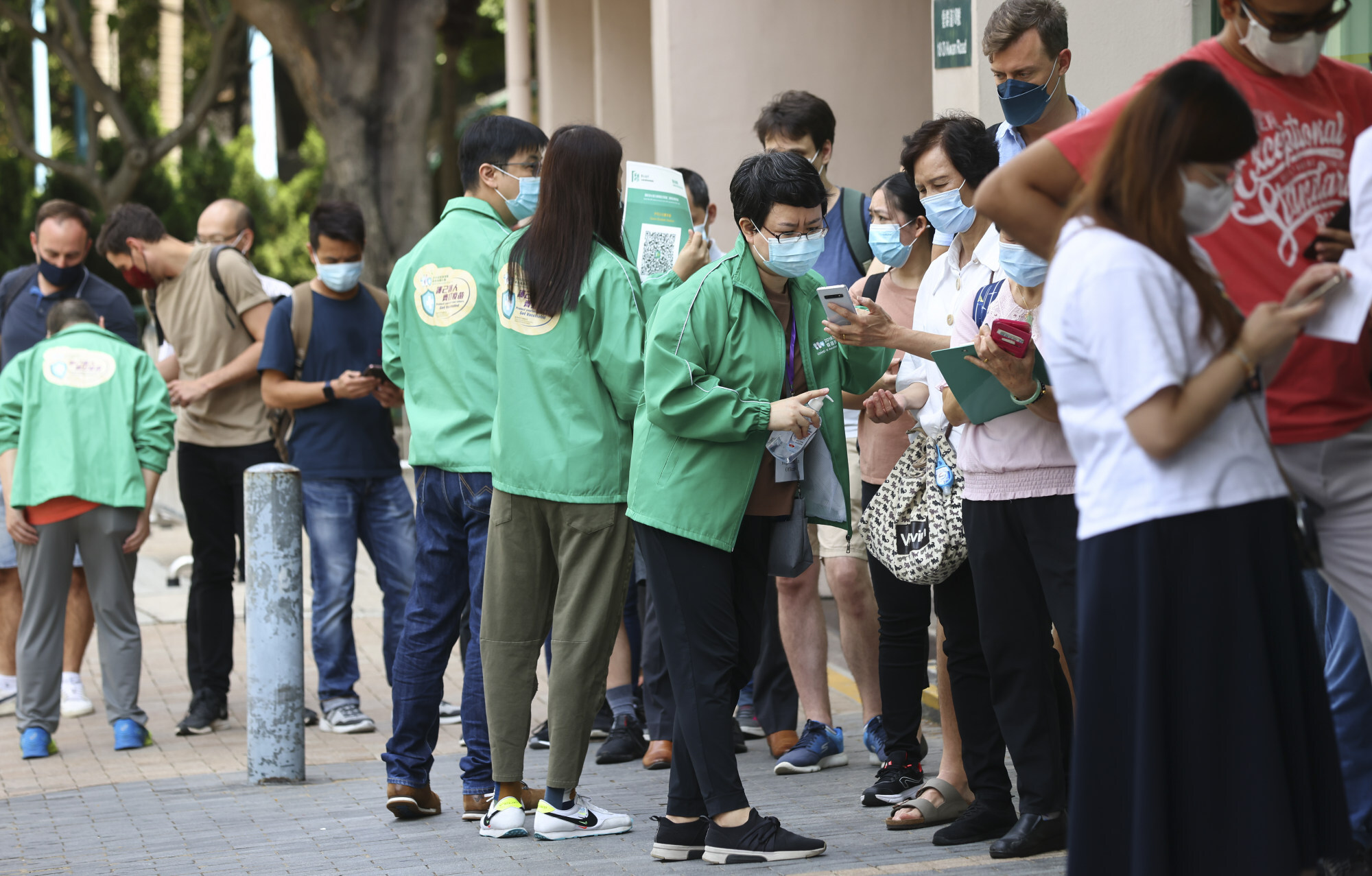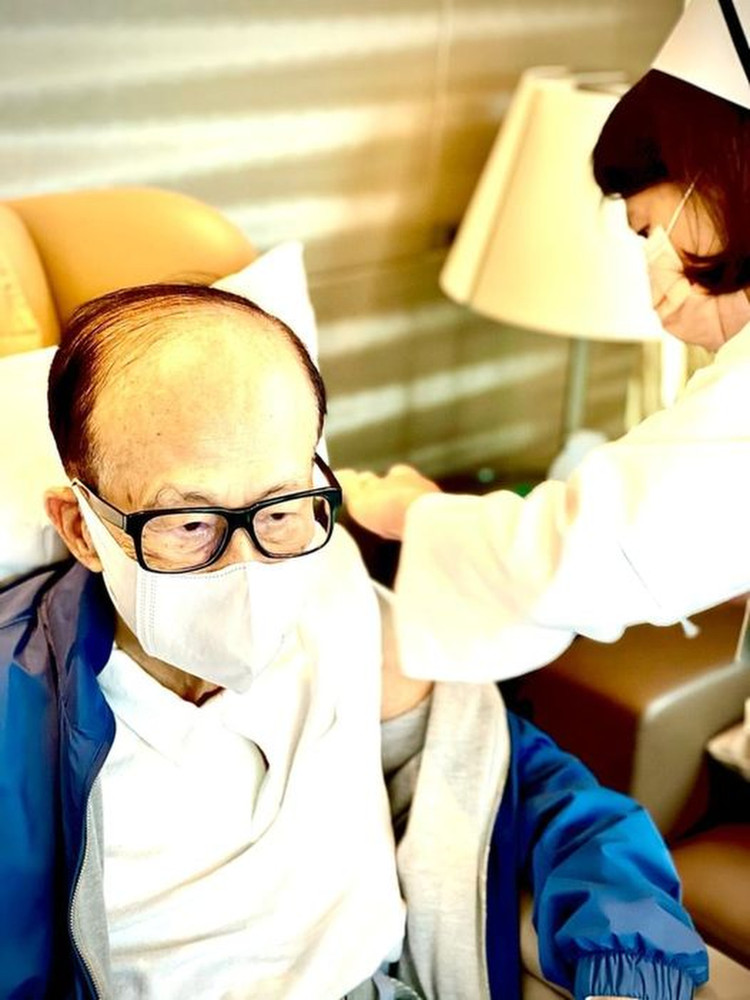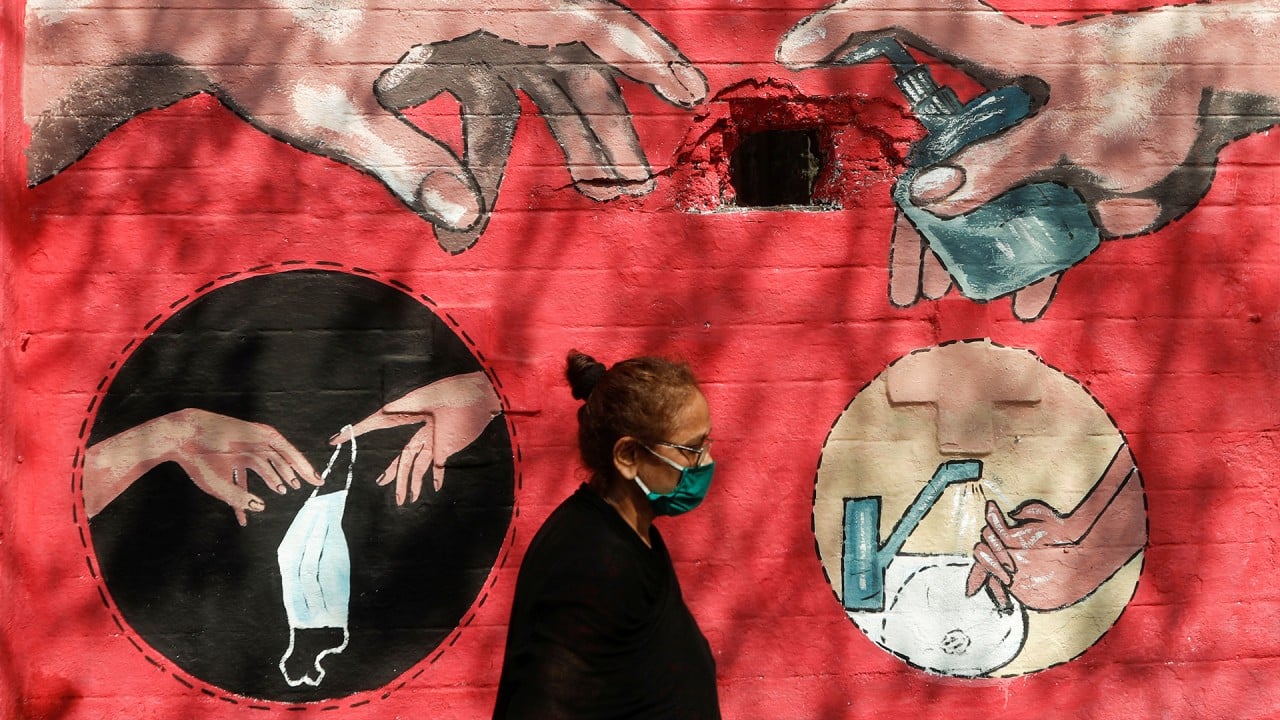
Coronavirus: Hong Kong building locked down after first infection involving mutant strain uncovered in community
- Authorities cordoned off Parkes Building in Jordan at 11.30pm for mandatory screening after a resident was found to be carrying a mutant gene of the coronavirus
- Hong Kong has confirmed more than 210 infections involving coronavirus variants, but all of the previous cases were imported
Authorities cordoned off Parkes Building on 17-23 Parkes Street at 11.30pm for mandatory screening after a resident who tested preliminary-positive was found to be carrying a mutant gene of the coronavirus.
The lockdown was expected to end at 8am on Saturday, and those in the building were told to stay in their homes until all residents had been tested for Covid-19 and most of the results were ascertained.
A government spokesman said that because the preliminary test result involved a mutant gene and subdivided flats were common in the relatively old building, the risk of infection was “likely higher than usual”.
For that reason, “the government decided to make a ‘restriction-testing declaration’ for the [building] immediately after the test result was found positive”, the spokesman said in a statement.
Hong Kong has recorded more than 210 infections involving coronavirus variants, all imported cases. The government did not reveal which mutation was involved and it was unclear whether the patient in the latest case had recently travelled.
Five of the local cases were family members of a couple living at the Meadowlands housing estate in Yuen Long who were confirmed as infected on Thursday. The other case was from Oi Fai House at Yau Oi Estate in Tuen Mun.
Vaccination programme expanded to those under 30; BioNTech shots to close in September
The 11 imported cases involved five infections from Indonesia, two from the Philippines, two from India and one each from Pakistan and France. Three of the cases – from Pakistan, the Philippines and Indonesia – carried the N501Y mutation of the virus.
A ban on flights from a specific country could be triggered if five coronavirus cases with the more transmissive variant are recorded over a seven-day period.
The city’s tally of confirmed cases stood at 11,635, with 209 related deaths.
Meanwhile, civil service chief Patrick Nip Tak-kuen said Hong Kong would still be able to vaccinate residents with BioNTech jabs, albeit on a smaller scale, after its community coronavirus inoculation centres have closed in September.
A day earlier, a patients’ rights group had expressed concern that some residents might not be able to consult their doctors within the next few months and asked the government to save shots for them.
Asked if authorities could cater to those with special medical needs, Nip told a local radio programme: “We can handle this.”
“Large-scale inoculations can only take place in vaccination centres,” he added. “But at a smaller scale, or for a smaller amount of people, it can be handled at other medical facilities.”
He said authorities would continue to monitor the situation, as the government hoped all who wanted to receive a shot could get one.

Opening up the scheme to the 1.08 million Hong Kong residents aged between 16 and 29 will take the total number of people eligible in the city to 6.5 million, or 88 per cent of its population.
Currently, only those aged 30 and above are allowed to receive a jab through the scheme, although there is an exception made for younger people who belong to groups such as health care workers, teachers and restaurant staff.
The government also urged residents seeking the BioNTech version to get their first shot by the end of August, before the closure of the city’s 29 community vaccination centres in late September.
The day before, Nip said the timeline for vaccination centre closures had taken into account the supply, inoculation rates and storage limitations of the BioNTech vaccine.
On Friday, he said he hoped to get the remaining city residents vaccinated as soon as possible to guard against the coming winter, a period when virus outbreaks could happen more easily.
He said authorities would also need to monitor the city’s storage capacity, a lack of which could necessitate an adjustment in delivery dates.
Nip also openly thanked tycoon Li Ka-shing for supporting the vaccination scheme by taking his first dose on Friday at Hong Kong Sanatorium and Hospital, which provided the BioNTech jab.
In another development, a 44-year-old woman was injected with a contaminated needle while receiving her Covid-19 jab at Queen Elizabeth Stadium community vaccination centre in Wan Chai on Thursday.
Dr David Lam Tzit-yuen, head of the vaccination centre that supplied BioNTech jabs, confirmed a nurse had injured their hand with a needle, which was then used to inoculate the resident.
A different nurse reported the incident and the doctor on-site immediately checked on the resident, who was then taken to Ruttonjee Hospital as a precaution.
The Department of Health stated that the resident was discharged on the same day after checks. The department had required the health team operating the centre to submit a detailed report in seven days, and has inspected the centre’s operation.
Lam said authorities were investigating whether the injured nurse used the contaminated needle to vaccinate the resident. Based on their initial understanding, the nurse’s finger had blood on it.
“It’s an incident that shouldn’t have happened. The biggest concern is the risk of infection,” Lam said, adding that the two people would need to be checked to see if they had any blood-borne diseases. “If there is none, then the risk is very low.”

He said the two nurses have been transferred from the centre.
Infectious disease specialist Dr Joseph Tsang Kay-yan said the risks varied even if there was blood on the needle.
“There are lots of variable factors, for example, whether the injured person was a carrier of [blood-borne diseases] such as hepatitis B, hepatitis C or HIV/Aids,” Tsang said.
Opinion: The danger of Hong Kong’s divisive ‘vaccination bubble’ – more inequality
Separately, a Chinese University study showed that antibodies against the coronavirus could be transferred to newborns from mothers who recovered from the infection.
The study, published in medical journal Ultrasound in Obstetrics and Gynaecology, looked into 20 women who had Covid-19 and gave birth by the end of January.
Babies of all but one of 13 mothers who recovered from the infection by the time of delivery tested positive for antibodies against the coronavirus. The remaining seven mothers were with active infection or did not produce antibodies by the time of delivery.
All babies in the study were also found not infected with the coronavirus.





